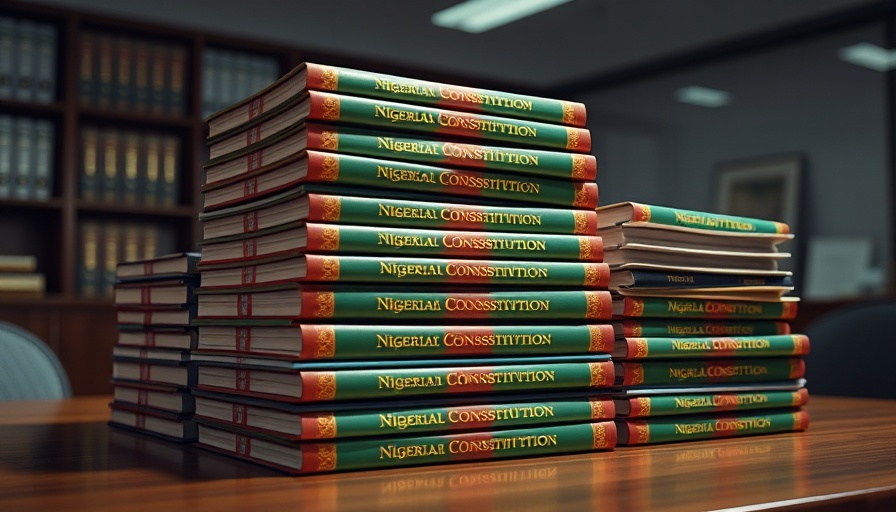
Understanding the Demand for More States in Nigeria
The ongoing constitutional review process in Nigeria has ignited a passionate discourse among various stakeholders advocating for significant changes. One prominent insistence from many quarters calls for the creation of additional states. This demand is particularly vocal from the southeastern region, where proponents argue that historical injustices and socioeconomic inequities necessitate the establishment of more states. As highlighted by advocates, the existing disparity in the number of states among different ethnic groups reflects a critical imbalance warranting redress.
In 'Nigeria's Constitutional Review: Calls for State Creation, Autonomy, and Reforms', the discussion dives into vital constitutional changes, prompting a deeper exploration of its implications and necessities.
The Fight for Autonomy: More Than Just Expanding Territories
Many argue that creating new states is not merely about increasing territorial divisions but enhancing governance and accountability. Proponents of the Anyama State Creation Project argue that such movements can bring governance closer to the people and potentially improve local representation. This sentiment resonates especially with regions historically perceived as marginalized within the larger national framework. Advocates believe that having more localized governments can lead to improved service delivery and increased responsiveness to the needs of citizens.
Cost Implications and Political Viability of State Creation
A significant point of contention in this debate is the financial burden that new states may impose on an already strained economic framework. Critics argue that adding more states may lead to bloated bureaucracies and heightened governance costs, which could plague Nigeria's fiscal sustainability. Nonetheless, supporters counter that the government's current financial inefficiencies are primarily driven by systemic corruption rather than the bureaucratic expansion linked to state creation. This perspective emphasizes the need to tackle corruption alongside restructuring governance frameworks.
Security Concerns: Is More Governance the Answer?
In a country grappling with various security challenges, the argument for more states includes addressing localized insecurities more efficiently. Supporters of new states posit that decentralized governance could enhance security provisions, making them more tailored and effective. However, skeptics point out that numerous existing states already struggle with security, raising questions about whether merely proliferating states will actually address underlying issues.
Judicial Reforms: Restrictions Beyond Borders
A parallel demand emerging from the constitutional review discussions is the need for judicial reforms. Both the adequacy of Nigeria's judiciary and its independence from political interference surface as critical points of discussion. Similar to the demand for state creation, advocates for judicial reforms argue that an independent judiciary is essential for democracy's sustenance and the equitable administration of justice across an increasingly diverse populace.
Economic Viability: Creating States with Substance
The economic viability of proposed new states remains a pivotal topic in conversations about their potential creation. Critics often question whether additional states would be able to generate sufficient revenue to be self-sustaining. In this light, it is crucial to consider the economic capabilities and resources present in the regions slated for new states. Proponents argue that, with the right leadership and innovation, even new entities could thrive, driving job creation and economic growth. They emphasize the importance of harnessing local resources and human capital for sustained development.
The Broader Implications of Constitutional Reforms
This entire discourse on constitutional reforms, including state creation and judicial independence, feeds into a larger narrative regarding Nigerian governance. The outcome of these discussions will shape the future of Nigerian democracy and could set a precedent for how power dynamics play out on the continent. As stakeholders engage in these necessary debates, it is essential for citizens to remain vigilant and involved, ensuring that their demands for accountability and equity ring clearer than ever.
In conclusion, the current constitutional review process in Nigeria advocates for significant structural changes that could enhance governance and representation. As the discourse continues, stakeholders must critically examine not only the potential benefits of state creation but also the underlying economic and political realities that define Nigeria's current landscape. Ultimately, successful implementation of these reforms could transform governance in Nigeria.
 Add Row
Add Row  Add
Add 


Write A Comment